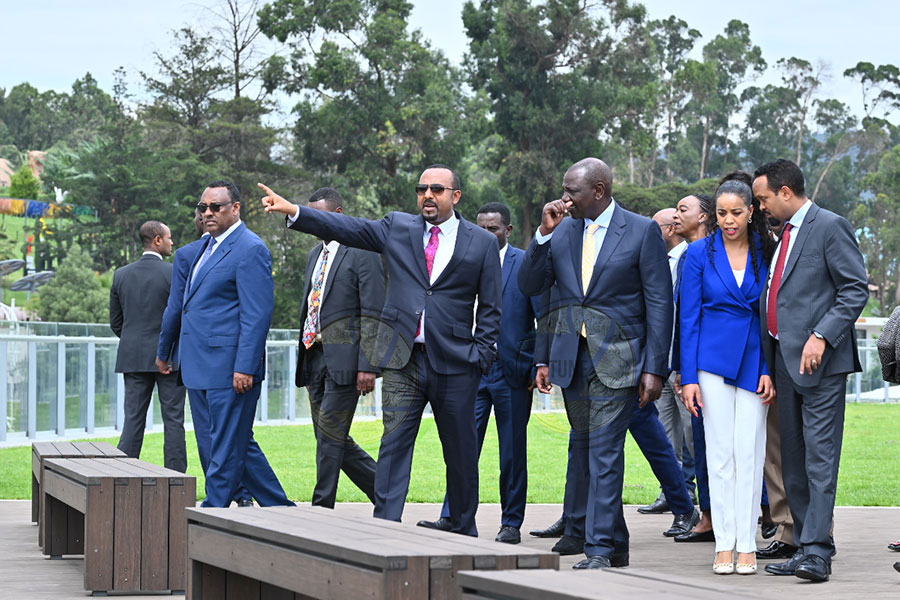
My Opinion | Aug 18,2024
As the New Year in the Ethiopian calendar approaches, I pondered what my resolution should be, as is customary for most people. It was then instantly I was caught up with nostalgia for what went on in my final year of college, around when I was to graduate.
In our graduation magazine at the university, there was a piece written by staff from our department. I only glanced at it as it was unusual for such a thing to be written. The staff member was a young guy; an MBA from overseas. I should have expected something out of the ordinary. After a few words of well-wishing, under his photograph where he was neatly dressed, he pessimistically detailed the scenarios we, as fresh graduates, were going to encounter out in the labour market.
The stark anecdotes he had put together looked disjointed but had an overall crucial message. Unfortunately, we were in the high of graduation. Most of us did not read it, and thus, could not share the writer’s enthusiasm. Some of the other pieces in the magazine, many of them from our classmates, seemed more enticing, although they had the bare minimum of what reading demands.
We were rather busy competing for graduation quotes using puns, inept japes and pointless riffs. More attention was given to our photographs that appeared in the magazine, the number of attempts to espouse the best look possible. It was usually a pose looking metaphorically to the future. Just as equally amazing was the number of attempts made to make them look perfect. In those days, it was not costless to take as many photos as one wanted. There were no digital cameras but photographic film, every inch of which cost money and could only be used once.
Graduation was great. But as immediately as I reported to the public enterprise I was assigned, all the optimism waned and the pessimism forewarned by our esteemed young academic started hitting its high notes. Yet, I was fortunate, as it coincided with a change of government and the eventual opening up (to a point) of the economy to the private sector. The huge enterprise I was a part of had immense resources, especially human. It caught the eye of World Bank experts, which initiated a complete overhaul. I gladly partook in this and ended up with a special commendation letter that I highly value to this day.
In the end, optimism prevailed. It is a lesson for the young generation to keep the flames of hope alight. It is also my New Year resolution to constructively engage with young people, especially from the perspective of changing domestic and global dynamics on financial and technological developments and regional integration initiatives.
That is all in Rick Snyder’s, American psychologist, three elements of hope. Hopeful thinking, first, incorporates the setting of goals, of seeing where we want to go, of how we want life to be different or better. Second, it incorporates the belief that we can find practical, achievable ways and means to reach our desired goals or outcomes. This he calls pathways. Finally, hope incorporates the belief that we can generate and maintain the necessary motivation and energy to reach our desired goal. This is referred to as agency.
The younger generation needs to stay on guard, saying no to distracters but yes to the many opportunities for learning, growth and even potential failures that are important markers on our journey. There is no shortage of news and reports to keep us up at night and make us believe that nothing of value is achievable whatever our efforts.
As Churchill said, “Success is not final, failure is not fatal: it is the courage to continue that counts.” Such courage is only found in those that hope.
PUBLISHED ON
Sep 10,2022 [ VOL
23 , NO
1167]


My Opinion | Aug 18,2024

Radar | Apr 24,2023

Fortune News | Aug 17,2025

Fortune News | May 31,2020

Fortune News | Jul 07,2024

Featured | Oct 27,2024

Fortune News | Oct 08,2022

Radar | Mar 14,2020

Advertorials | Nov 26,2024

Fortune News | Feb 23,2019

Dec 22 , 2024 . By TIZITA SHEWAFERAW
Charged with transforming colossal state-owned enterprises into modern and competitiv...

Aug 18 , 2024 . By AKSAH ITALO
Although predictable Yonas Zerihun's job in the ride-hailing service is not immune to...

Jul 28 , 2024 . By TIZITA SHEWAFERAW
Unhabitual, perhaps too many, Samuel Gebreyohannes, 38, used to occasionally enjoy a couple of beers at breakfast. However, he recently swit...

Jul 13 , 2024 . By AKSAH ITALO
Investors who rely on tractors, trucks, and field vehicles for commuting, transporting commodities, and f...

Oct 25 , 2025
The regulatory machinery is on overdrive. In only two years, no fewer than 35 new pro...

Oct 18 , 2025
The political establishment, notably the ruling party and its top brass, has become p...

Oct 11 , 2025
Ladislas Farago, a roving Associated Press (AP) correspondent, arrived in Ethiopia in...

Oct 4 , 2025
Eyob Tekalegn (PhD) had been in the Governor's chair for only weeks when, on Septembe...